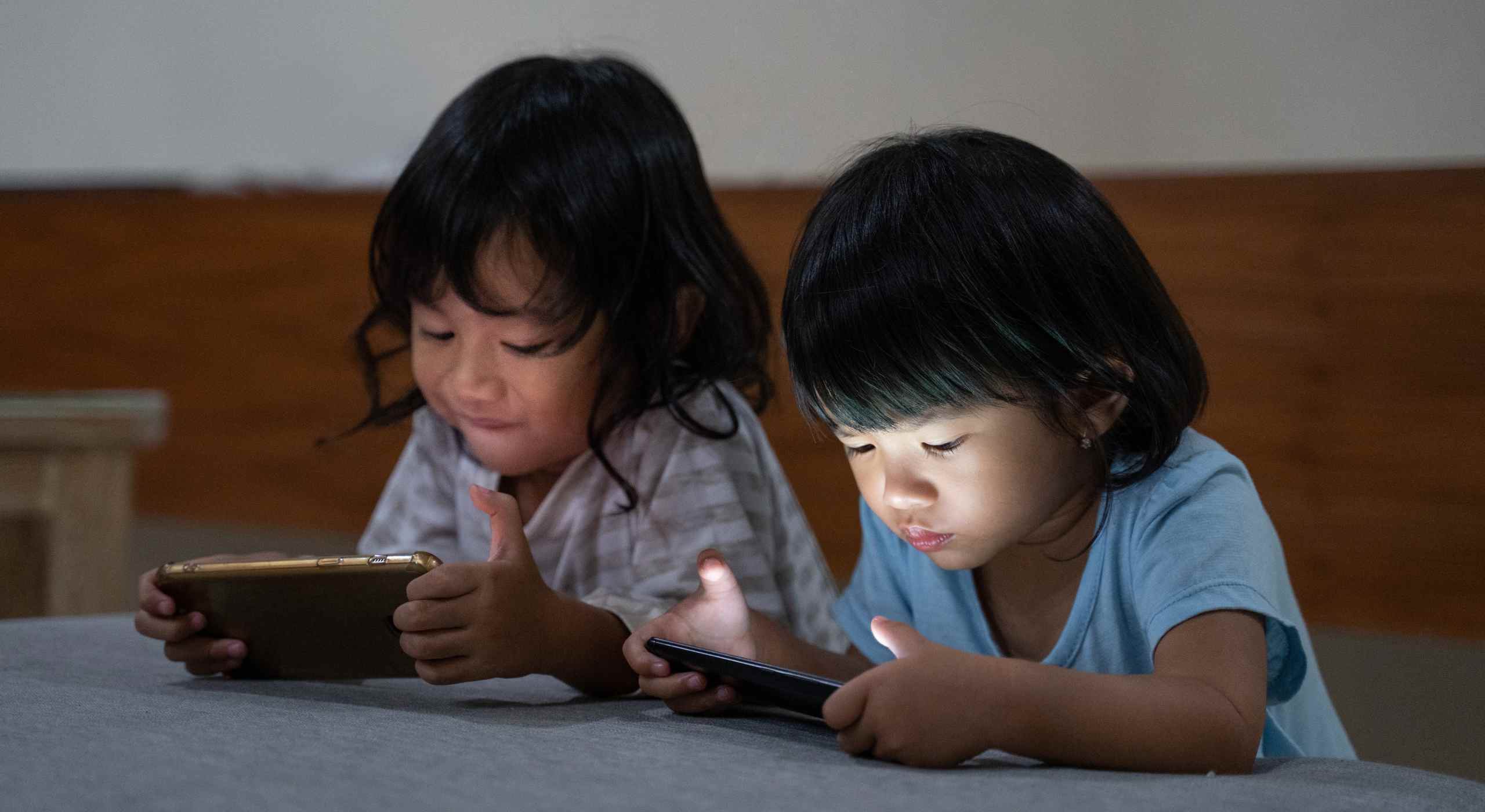In today’s digital age, screens have become an integral part of our daily lives, and young children are increasingly exposed to various electronic devices. While screens can offer educational content and virtual connections, it is important for parents and caregivers to understand the potential impact of screen time on children’s development, particularly for those under the age of two. Balancing the benefits and risks of screen time is essential for promoting healthy growth and ensuring that children receive appropriate stimulation and interaction in their early years. In this section, we will explore the advantages and disadvantages of screen time for children within the critical age range of two years and provide recommendations for fostering a healthy approach to screen usage.
Screen time can have both positive and negative effects on language development in young children. Here are some ways in which screen time can impact language development:
- Language Exposure: Screens, such as television programs or videos, can provide exposure to a variety of words and language patterns. Educational content designed specifically for language development can introduce new vocabulary and promote language skills.
- Passive Language Consumption: Excessive passive screen time, where children passively watch without active engagement or interaction, can hinder language development. Children learn language best through real-life interactions and conversations rather than passive consumption of screen content.
- Limited Communication Opportunities: Screen time can reduce opportunities for face-to-face communication and interactions with caregivers or peers. Language development thrives when children engage in conversations, receive feedback, and practice their communication skills in real-life settings.
- Decreased Language Imitation: Some studies suggest that excessive screen time during early childhood can lead to delayed language acquisition, as children may have fewer opportunities to imitate and practice language skills from real-life models.
- Disrupted Attention: Screens, particularly those with rapid changes and visual stimuli, can impact children’s attention span and focus. This may interfere with their ability to engage in sustained language activities or actively participate in conversations.
- Overuse of Background Noise: Continuous exposure to background noise from screens, such as television or videos playing in the background, can interfere with a child’s ability to focus on and understand spoken language in their environment.
- Decreased Verbal Interaction: Excessive screen time may reduce the time spent in verbal interactions and turn-taking conversations, which are essential for language development. This can limit children’s opportunities to practice language skills, express themselves, and engage in meaningful conversations.
It’s important for parents and caregivers to be mindful of the quantity and quality of screen time that children are exposed to, especially during the critical period of language development. Striking a balance between screen time and real-life interactions, providing rich language experiences, and engaging children in interactive language activities can support healthy language development in young children.
Advantages of Screen Time for Children Under 2 Years:
- Educational Content: Some age-appropriate educational programs and interactive apps can provide valuable learning experiences for young children. They may introduce basic concepts, numbers, letters, and promote cognitive development.
- Virtual Social Interaction: Video calls with family members can allow young children to connect and bond with loved ones who are physically distant. This can help maintain relationships and support social development.
- Skill Development: Certain interactive apps or games designed for infants and toddlers can help develop fine motor skills, hand-eye coordination, and problem-solving abilities.
Disadvantages of Screen Time for Children Under 2 Years:
- Limited Interaction and Communication: Excessive screen time can reduce opportunities for face-to-face interactions, which are vital for language development, social skills, and emotional bonding.
- Delayed Language Acquisition: Studies suggest that excessive screen time during infancy and early childhood may delay language acquisition and hinder expressive and receptive language skills.
- Disrupted Sleep Patterns: The blue light emitted by screens can interfere with the production of melatonin, a hormone that regulates sleep. Excessive screen time close to bedtime may disrupt sleep patterns and affect the quality and duration of sleep.
- Sedentary Lifestyle: Prolonged screen time can contribute to a sedentary lifestyle, leading to a lack of physical activity, which is crucial for healthy growth and development.
- Attention and Behavioral Issues: Excessive exposure to screens at a young age has been associated with attention problems, decreased concentration, and increased impulsivity. It may also contribute to behavioral issues in some children.
- Screen Dependency: Regular exposure to screens during early childhood can lead to screen dependency or addiction, making it challenging to engage in other activities or develop healthy screen time habits in the long run.
Recommendations for Healthy Screen Time Habits:
- Limit Screen Time: The American Academy of Pediatrics recommends avoiding screen time for children under 18 months, except for video chatting. For children aged 18-24 months, if screen time is introduced, it should be limited to high-quality educational content and supervised by parents or caregivers.
- Prioritize Interactive Activities: Encourage activities that involve physical movement, exploration, creative play, and social interactions. These experiences are essential for a child’s overall development.
- Co-View and Engage: Whenever screen time is allowed, try to watch and engage with your child. Use it as an opportunity for shared learning, discussion, and bonding.
- Create Tech-Free Zones: Establish screen-free zones in your home, such as bedrooms and mealtime areas, to promote healthy habits and quality family interactions.
- Be a Role Model: Children learn by observing their parents’ behavior. Set a positive example by limiting your own screen time and engaging in other activities.
Remember, it’s important to strike a balance and prioritize a variety of developmentally appropriate activities that support your child’s growth and well-being. Screen time should be used sparingly and purposefully, with a focus on quality content and interactive experiences.

